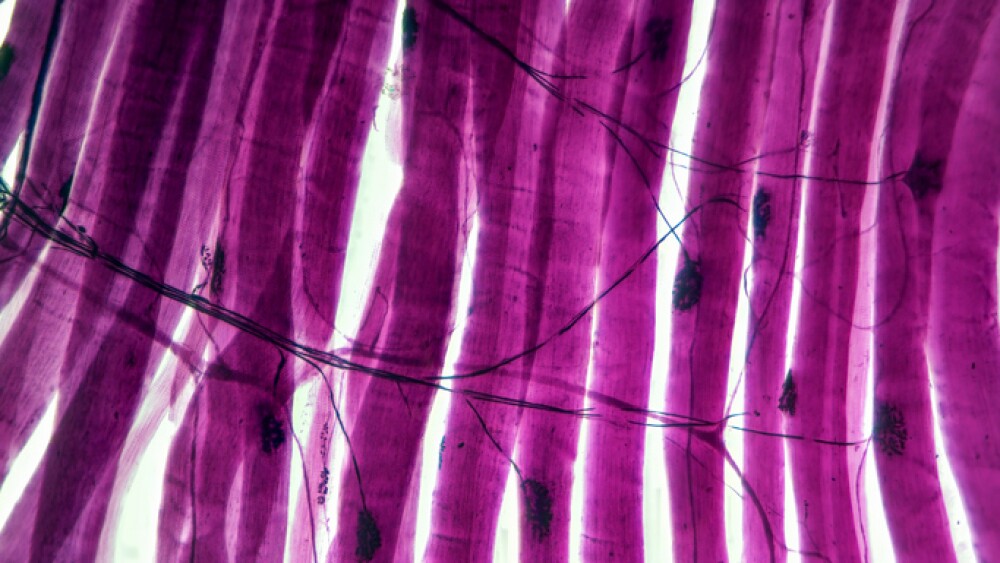Precede Biosciences announced the first clinical data from its proprietary liquid biopsy platform were presented in an oral presentation at the European Society for Medical Oncology Congress in Madrid, Spain, and simultaneously published in Nature Medicine.
- Pivotal findings stem from Precede’s first-in-class platform in collaboration with Dana-Farber Cancer Institute
- Results underscore the immense potential of the blood-based platform to impact therapeutic and clinical decision-making
- Published dataset is largest of its kind, with over 1,200 cell-free-DNA transcriptional profiles from more than 400 patients affected with 15 different cancers
BOSTON, Oct. 21, 2023 (GLOBE NEWSWIRE) -- Precede Biosciences, a company impacting the development and use of precision medicines with a first-in-class liquid biopsy platform, today announced the first clinical data from its proprietary liquid biopsy platform were presented in an oral presentation at the European Society for Medical Oncology (ESMO) Congress in Madrid, Spain, and simultaneously published in Nature Medicine. The data demonstrate the platform's unique capability to inform and impact clinical decisions by providing resolution into the activation status of individual disease-defining genes and pathways genome-wide, from a simple blood draw.
“Despite the significant advances in our understanding of gene regulation and transcriptional biology at the cellular level over the last decade, our ability to translate these findings into the clinic has been limited by technology,” said Matthew L. Freedman, MD, Professor of Medicine at Dana-Farber Cancer Institute and Co-Founder of Precede Biosciences. “With this clinically tractable platform, a simple blood test, we can now profile disease-defining biology and dynamic changes in this biology at clinical scale, offering the opportunity for significant clinical impact.”
“The power of the technology platform was evident across all 15 cancers we studied, elucidating gene and pathway activation relevant to therapeutic decision-making and clinical diagnoses, such as HER2, AR, ER, and DLL3 activation,” said Sylvan Baca, MD, Ph.D., Assistant Professor of Medicine at Dana-Farber Cancer Institute, Co-Founder of Precede Biosciences, and presenter at ESMO. “From just one milliliter of plasma, we now have the ability to broaden the utility of liquid biopsy across a wide range of research and clinical applications.”
Carl Barrett, Ph.D., Chief Scientific Officer of Precede Biosciences, continued, “The data presented today, combined with the data we are continuing to accumulate at Precede and Dana-Farber, showcase the tremendous potential of this platform to inform on actionable disease-defining biology and significantly enable drug development and decision-making in clinical practice. We look forward to sharing additional data that build upon what has been presented and published today in another scientific forum later this year.”
The clinical data presented and published today comprised more than 1,200 genome-wide transcriptional profiles generated from the plasma of more than 400 individuals affected by 15 cancers. By using only 1 mL of patient plasma from standard clinical collection tubes, the platform was able to provide resolution into actionable drug targets and diagnostic markers and provide resolution into the emergence of challenging-to-diagnose resistance phenotypes.
For example, a blood sample from a patient with advanced, progressive colorectal cancer (CRC) demonstrated an elevated signal at the HER2 gene promoter. Despite the availability of HER2 directed therapies, testing for HER2 in these patients is not commonplace, given the invasive tissue testing required and the estimated low prevalence of this phenotype (~3%). In this patient’s case, the signal identified by the Precede blood-based test was confirmed subsequently by tissue biopsy and immunohistochemistry (IHC), enabling this information to be used for clinical care. In the future, a simple blood draw and testing with the Precede platform may be sufficient for clinical decision-making alone. This very real case demonstrates the power of the Precede platform and its potential to impact precision medicine.
A copy of the presentation and a link to the manuscript can be found in the News section of the website.
About Precede Bioscience's Liquid Biopsy Technology
Development and clinical use of precision medicines have been hampered by challenges in accessing, analyzing, and integrating actionable biological and clinical data. The result, all too often, has been a "trial and error" approach to both developing medicines and to treating patients in practice.
Precede's genome-wide platform addresses the need to have resolution into the activation status of the disease-defining genes and pathways that drive response and non-response to therapy from a simple blood test. Using sophisticated and proprietary molecular biology and machine learning, Precede profiles circulating chromatin and the DNA methylome from 1mL of plasma, giving access to a dynamic and feature-rich space of ~20K gene promoters, ~1M gene enhancers, and ~50K CpG islands.
Precede’s platform is available to drug developers and academic researchers at www.precede.bio. Precede is also using its platform to develop blood-based tests for precision use of cancer medicines in practice, medicines that are associated with the need for invasive tissue-based tests.
About Precede Biosciences
Precede Biosciences is breaking down the barriers to precision medicine by redefining what can be learned from a simple blood draw. By understanding the fundamental biology behind disease at any given moment, researchers and clinicians can better target medicines to the right patients in both drug development and clinical practice. Precede seeks to improve success rates in drug development and to be a part of building a future where every patient can receive a rapid, minimally invasive diagnosis and therapy that is precise to the biology of their disease. To learn more, visit www.precede.bio or follow us on X/Twitter and LinkedIn.
Media Contact:
Brooke Shenkin
brooke@scientpr.com





